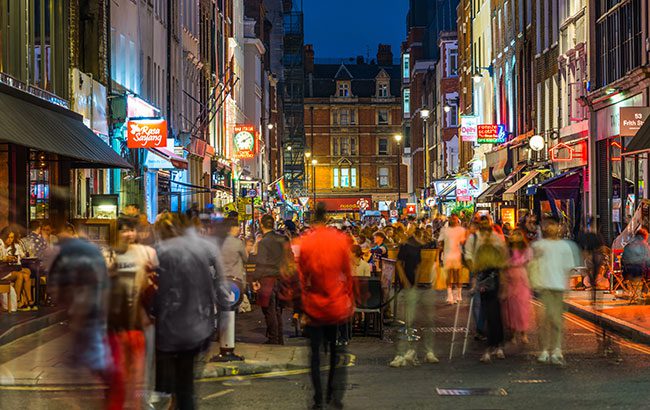Money and safety concerns stop young people going out
By Lauren BowesAccording to a study conducted by Obsurvant on behalf of the Night Time Industries Association (NTIA), the majority of young people in the UK are going out less than they did a year ago.

The research was based on a survey of 2,001 respondents aged 18-30 who were polled between 30 January and 4 February 2025.
Of those surveyed, 61% said they have gone out at night (past 10pm) less in the past year, with only 16% saying they have gone out more.
When it came for reasons for this decline, 68% said current economic conditions have reduced their participation in night-time activities, with 53% saying they spend less on going out compared with last year. Only 22% said there has been no change in their spending.
When it comes to deciding on a night out, 22% said financial considerations or social connections are their main influences. Another 19% cited safety or accessibility concerns as a decision-making factor.
Safety concerns were the most common reason given for people not staying out late at night, with 49% answering this way. Next was limited or unreliable public transport (33%), followed by high transport costs (32%).
Only 28% said they were deterred by a lack of late-night events or activities, while 26% cited personal obligations or schedule constraints.
Just 6% of respondents said they are not deterred by anything and stay out late as often as they like.
The survey also discovered that women generally experience more anxiety and fear when out at night than men. Of those surveyed, 31% said they experience negative emotions – such as anxiety, uneasiness or fear – when out at night, with 10% specifically stating they feel fearful or unsafe. In terms of gender, 12% of women supplied this answer, while only 5% of men did so.
Asking respondents when they typically feel unsafe at night, walking in poorly lit areas was the top response (70%). Women were significantly more likely to say that walking alone in poorly lit areas, using public transport and unfamiliar neighbourhoods make them more fearful.
The survey also asked respondents who felt unsafe or fearful at night how they regarded the government, with 46% saying they feel they are being ignored and 89% lacking confidence in its ability to address their generation’s challenges.
More than two-thirds of respondents (69%) said better late-night transportation would increase their likelihood of staying out late at night, with 41% specifying lower travel costs and 40% more frequent services at night.
The most common improvement desired for late-night transport, however, was enhanced safety measures such as lighting or security, with 46% choosing this as their preferred option.
Earlier this month, ride-hailing firm Bolt found that 31% of Londoners are going out at night less compared with last year, with 56% citing rising costs as a deterrent.
The NTIA also published its Night Time Economy Market Monitor, which discovered that the UK’s night-time economy was worth £153.91 billion (US$190.58bn) in 2024, a 2.5% growth on 2023.
Related news
Scottish on-trade nets 40% business rates relief
Are Indian investors waking up to the power of the on-trade?
